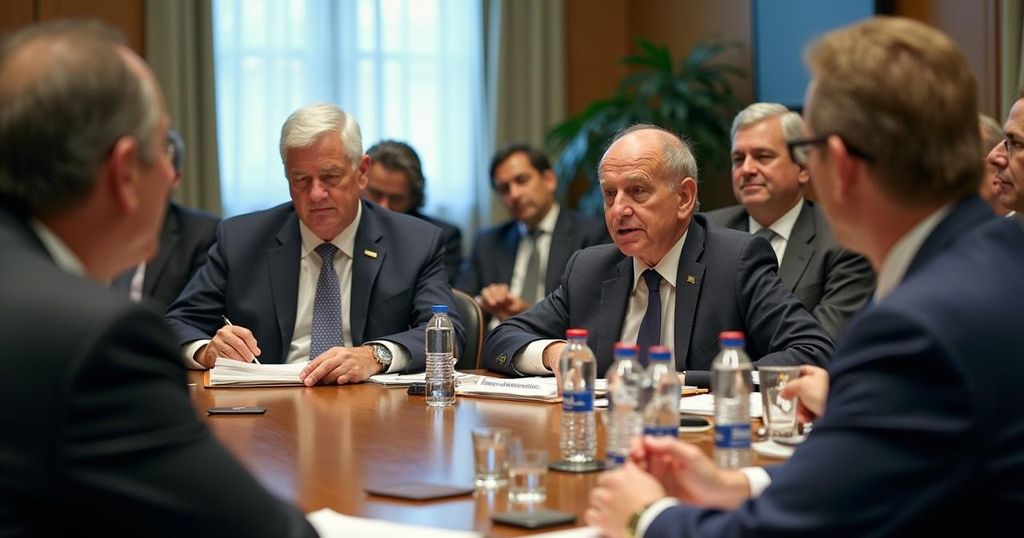IMF Reduces Penalty Surcharges for Indebted Nations

The IMF has reduced penalty surcharges for indebted nations such as Argentina, Egypt, Ukraine, and Ecuador, with the expectation that it will lower borrowing costs by 36% annually. This move comes in response to criticism of the punitive fees, which have primarily affected a limited number of high-borrowing countries. Despite significant changes, calls for a comprehensive suspension of surcharges persist, reflecting ongoing concerns about IMF lending practices amidst increasing global interest rates.
The International Monetary Fund (IMF) has announced a significant reduction in penalty surcharges that are levied on the world’s most indebted nations, including Argentina, Egypt, Ukraine, and Ecuador. This decision aims to alleviate the financial burden on these countries, particularly in light of rising global interest rates. IMF Managing Director Kristalina Georgieva stated that this change is expected to lower borrowing costs for member nations by approximately 36%, equating to an annual savings of $1.2 billion. The IMF executive board’s decision to reduce surcharges is a response to increasing criticism from member countries regarding the excessive fees imposed on them when they borrow beyond their allocations or take longer to repay loans. Currently, 20 countries are subject to these surcharges, but this number is anticipated to decrease to 13 by the fiscal year 2026, according to Georgieva. Georgieva emphasized the intention behind this reform to show responsiveness to the concerns expressed by financially distressed nations, including calls from leaders in Argentina and Brazil for the full suspension of surcharges. However, while the IMF’s recent adjustments may not fully satisfy its critics, they do raise the threshold for imposing certain surcharges and decrease the additional margin added to the prevailing interest rate. Historically, these penalty fees serve to discourage excessive borrowing and to protect the integrity of IMF funds by contributing to precautionary balances. Notably, the IMF achieved a target of $34 billion in precautionary funds ahead of schedule, potentially reducing the necessity for such punitive fees moving forward. This development arrives as Georgieva prepares to engage with global financial leaders in Washington later this month, showcasing the IMF’s willingness to adapt to the changing financial landscape affecting its members.
The International Monetary Fund (IMF) historically imposes surcharge fees on member nations that exceed their borrowing limits or take longer to repay loans. These fees are intended to discourage over-reliance on IMF resources while simultaneously safeguarding the fund’s financial stability. The recent decision to lower these penalty surcharges has been framed as a response to growing criticism from member countries struggling with high debt levels and demanding more equitable treatment amid rising global interest rates. This adjustment in policy aims to ease financial pressures on nations like Argentina, Egypt, Ukraine, and Ecuador, which have been heavily impacted by current economic conditions.
In summary, the IMF’s reduction of surcharge fees represents a substantial shift in its approach to managing loans for indebted nations. While this measure may alleviate some financial pressures on affected countries, the effectiveness of these changes in addressing the broader criticisms of the IMF’s lending practices remains uncertain. The organization’s ongoing dialogue with global financial leaders will be pivotal in shaping future policies related to member support during financial difficulties.
Original Source: www.hindustantimes.com





